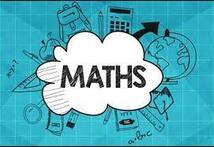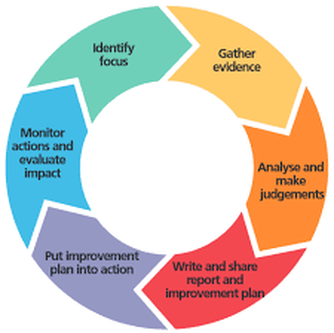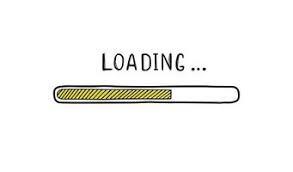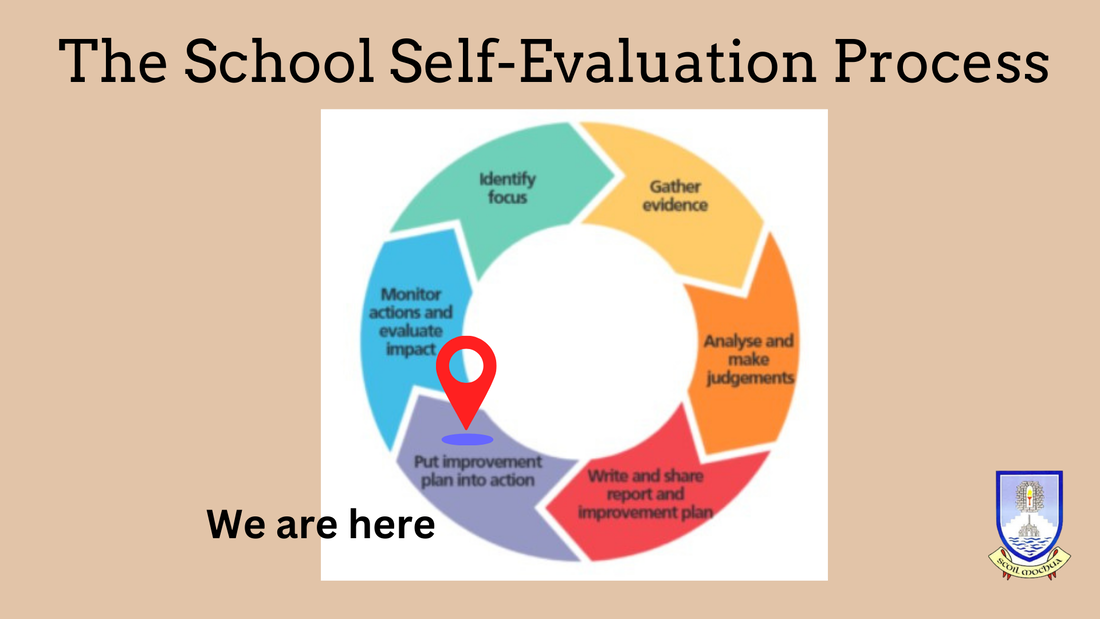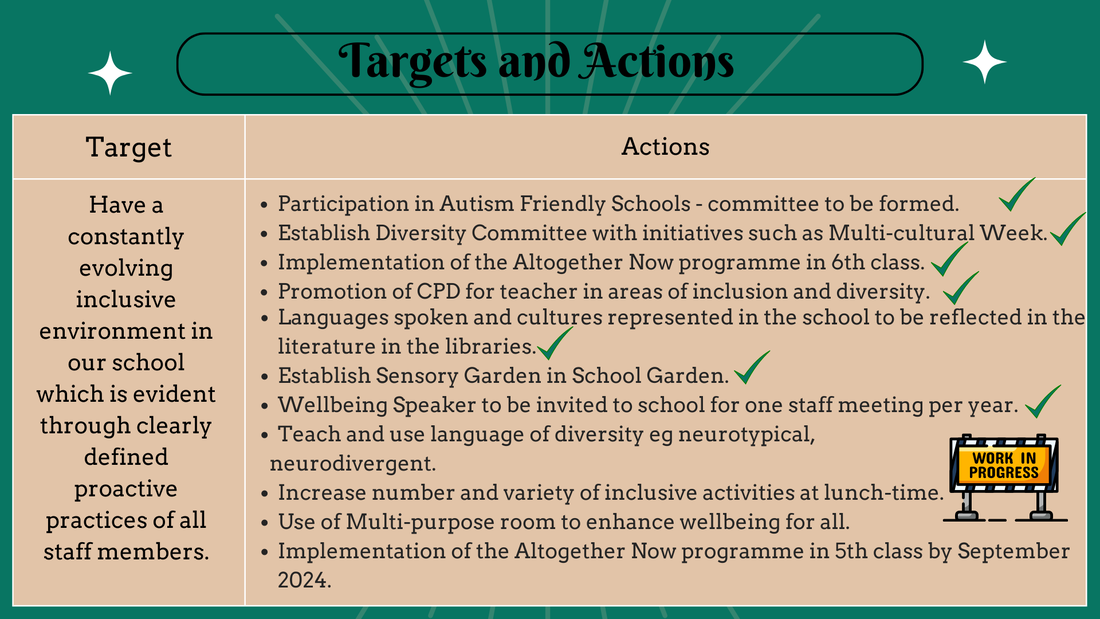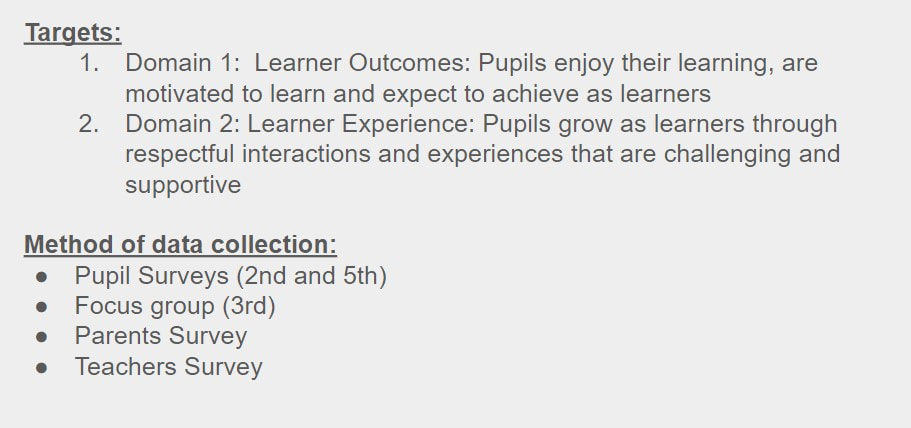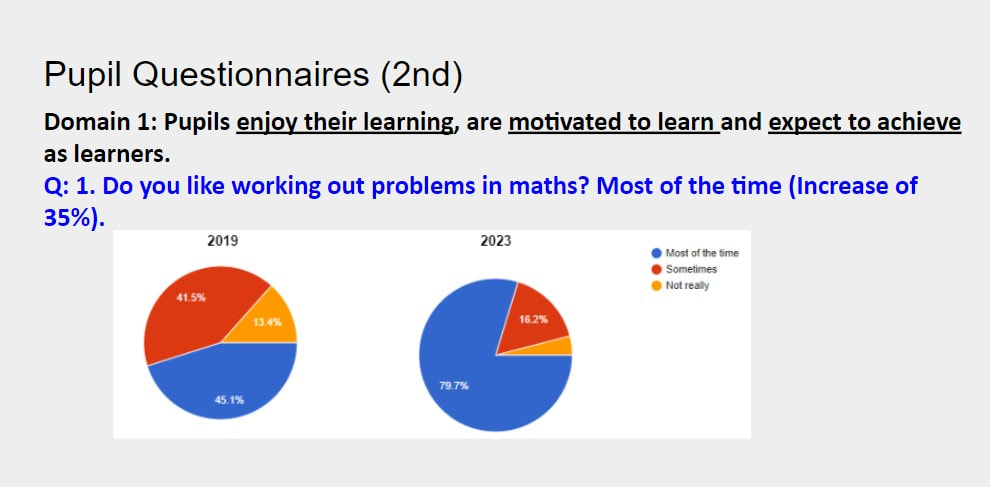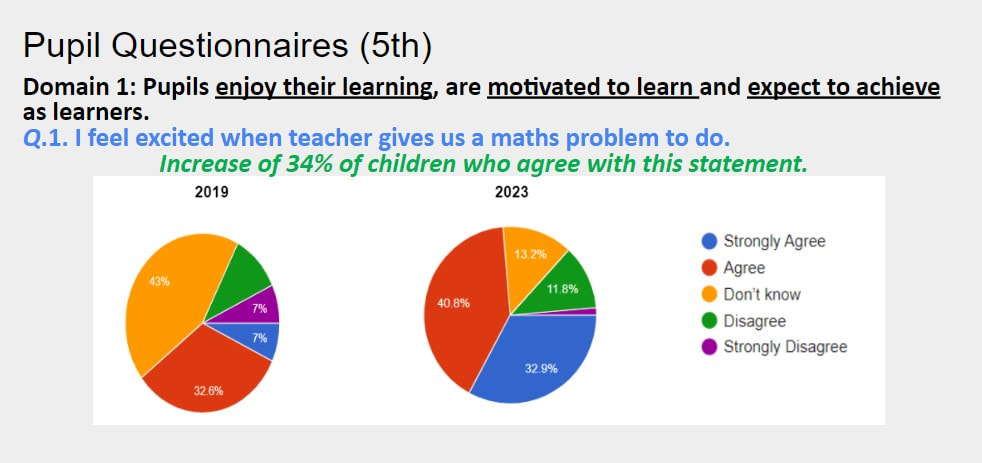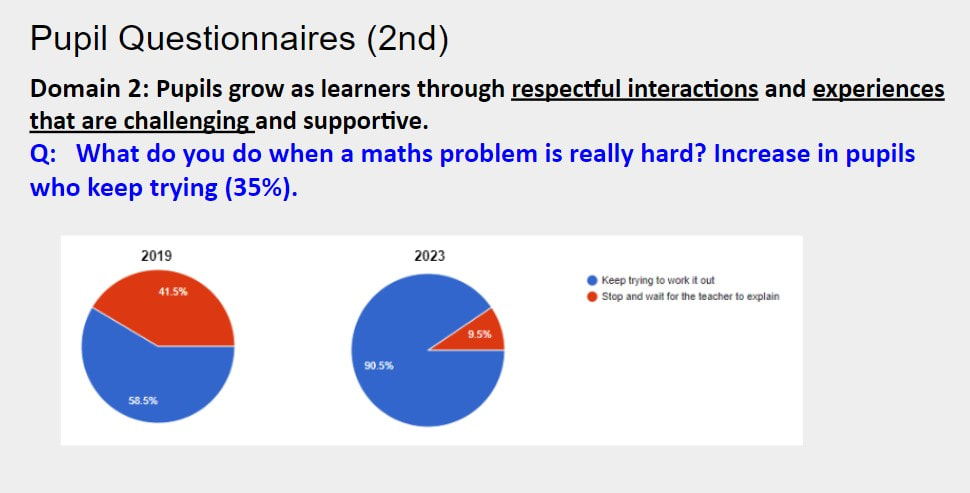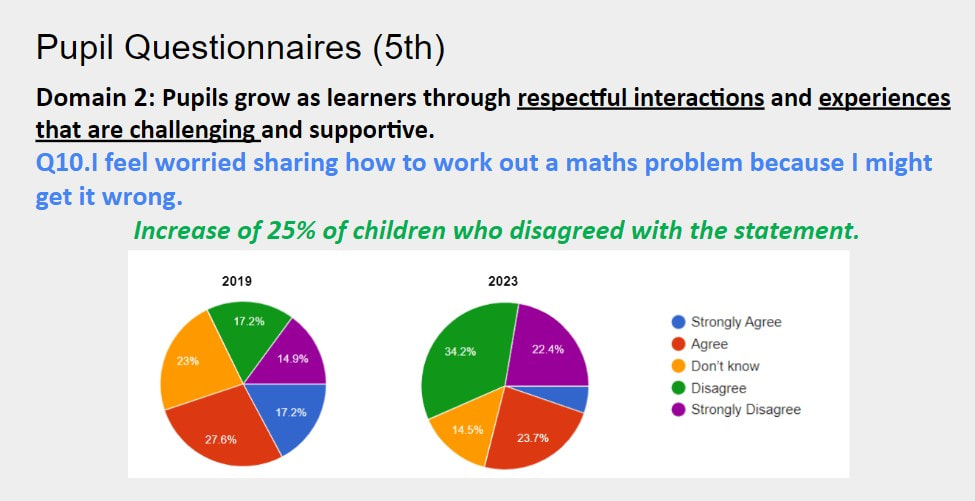scoil mochua school self evaluation
|
What is School Self Evaluation?
School Self Evaluation (SSE) is an ongoing process in Scoil Mochua. We are continually striving to improve our practices so that our pupils have the best possible educational experience while they are in primary school. Every few years, as a staff, we identify a focus for our school self-evaluation, and we spend several years on this area until the improvements are embedded in our practice and the benefits are evident for our pupils. What curricular area is Scoil Mochua working on at the moment? We are currently working on two areas under the structure of SSE:
What stage is Scoil Mochua at in SSE? School Self Evaluation is a six step process, as outlined in the image to the right. We are at the "monitor actions and evaluate impact" stage with problem-solving in maths. We are at the "write and share report and improvement plan" stage with well-being. More information to follow as we move through the SSE process in well-being. |
SSE in Digital Learning
Step 1 "Identify Focus": The Digital Learning SSE committee gathered feedback from staff to identify our focus:
sse in well-being
sse in Maths
Evaluating the impact

Thank you to the entire school community who helped us complete the SSE process in maths. We are so proud of the work done by all staff and children to go towards achieving our targets.
As always, thank you to our extremely supportive parents, who filled out surveys and worked with children at home on problem solving.
Take a look at the following pie charts created from pupil surveys. The results speak for themselves!
https://ncca.ie/en/primary/resources-for-parents/
https://ncca.ie/media/4893/junior-infants-maths-tip-sheet-for-parents.pdf
https://ncca.ie/media/4082/helping_your_child_in_fifth_and_sixth_classes.pdf
https://www.cgimath-tlc.org/blog/2020/3/20/doing-math-with-your-child-promoting-problem-solving-suggestions-for-parents-by-linda-levi
https://hvparent.com/build-problem-solving-skills
https://www.kumon.co.uk/blog/tips-for-parents-doing-maths-with-their-children/



